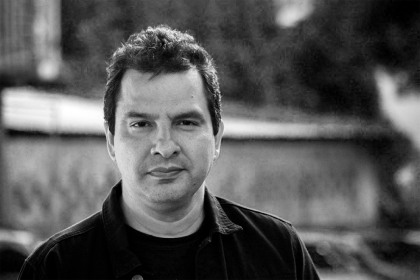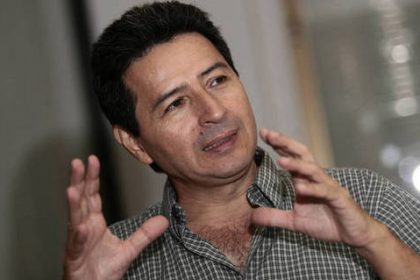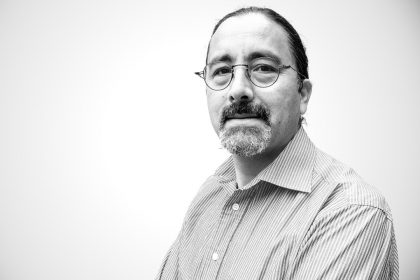Calixto Ávila │ Are propaganda, slander, and confusion strategies effective in UN human rights institutions? The Maduro government has been applying them for years nationally and for some time it has also intended to use them during debates with other UN member states and to disqualify the reports of Michelle Bachelet and her predecessor Zeid Ra’ad Al Hussein. These are fundamental pieces of its speeches during the interactive dialogues in that international organization, in order to evade the in-depth analysis of the Venezuelan situation and disqualify the recommendations.
Internally, and in violation of the National Constitution, Public Powers have stopped publishing reports and statistics, thus preventing the evaluation of the results of their public policies. The release of reports and accounts is either not done or they become apparently unstructured speeches, with random and partial statistics, destined to make any technical reading difficult. At the same time, propaganda strategies are deployed announcing bulky results that are far from reality, in a kind of “state mythomania”. In the short term, the government manages to have the attention and even admiration of its social bases, but in the long term the objective is another: to sow confusion. In this way, not only does the government’s contradictory and incoherent discourse makes social accountability difficult, but also it has a negative impact in the articulation of the political and social opposition to face a contradictory discourse that deliberately cultivates confusion. This is what philosopher John Dewey, in a conference on December 7, 1941, pointed out as the role of confusion in the projection and natural perpetuation of institutions in modern times.
Slander is added to the confusion as a catalyst that clouds reason and destroys discernment, replacing it with passion and resentment. Slander, like confusion, is not improvised and on the contrary, it is part of the communication policy not only of the de facto executive power but of the other public powers subordinated to that government. An emblematic example of the success of these strategies is the National Constituent Assembly (ANC): three years “legislating” without publishing a single draft of the Constitution, and whose president, Diosdado Cabello, has a weekly platform of propaganda and slander to the “adversary” (his TV show “Con el mazo dando”). The confusion and slander have contributed to the projection and institutional permanence of the ANC, not allowing the political and social opposition to articulate strategies to counter it.
What are the chances of success of that strategy in the United Nations? Last March, after the session of the UN Human Rights Council, we established ten mechanisms of the de facto government to neutralize the Human Rights Council and the High Commissioner for Human Rights. These mechanisms are intended to disqualify those institutions, to hide behind the principles of sovereignty and non-interference in internal affairs, to divert the debate towards situations in other countries, to victimize themselves by bringing up media campaigns and aggression against Venezuela, and to show themselves as a government that needs cooperation and not monitoring in human rights. By sowing confusion, the government sought to exempt itself from giving concrete answers on the matters debated in the Council.
Last July, the recipe was repeated by the ambassador of the de facto government during Council sessions. In his speeches, Valero disqualified the Council, accused his adversaries of interfering in favor of “the empire”, ignored Bachelet’s report of July 15, spoke of double standards used by the Council and the politicization of the mechanism, pointed out the situations in adversary countries, and he held up self-determination, independence, and sovereignty to avoid being scrutinized. He also reiterated the speech on the impact of unilateral sanctions, whose negative effect on the Venezuelan people we do not question, without referring to the dramatic impact of the excessive corruption that has taken place in the last two decades. Like a magician pulling rabbits out of a hat and echoing the propaganda displayed nationally, he extolled the government’s implausible figures on the construction of more than “3,103,281 decent houses.” At that time, in the midst of the diplomatic skirmish with the European Union, he referred to its leaders with adjectives such as interventionists, colonialists and supremacists, and accused the 27 members of the European Union of bending on their knees before Donald Trump.
Nothing indicates that this line of arguments will change during the Council sessions this September in Geneva. That government is not willing to give a substantive debate on human rights in Venezuela. Debating the Venezuelan reality means debating with transparency, with public and credible information, and also holding accountable for what they’ve done. It has not done that within the country, it will hardly do it outside of it. They know that when it comes to voting, they are a minority in the Council and that is why the ambassador takes an extreme position. The emblematic and shameful solo vote against the Resolution Responsibility to protect populations from genocide, war crimes, ethnic cleansing, and crimes against humanity, indicates that its recent membership in the Council has not given it any advantage. For this reason, the government prefers to insist on strategies of confusion and propaganda, supported by similar governments that are not willing to be held accountable or to be reviewed according to international human rights law. In chorus with his few allies, it attacks the Council and its members, while mitigating the political cost by playing the technical assistance card to rule out any monitoring that might hold them accountable.
The de facto government knows that in the UN it cannot upset the applecart as it did in the Inter-American System where it denounced the American Convention on Human Rights and then left the OAS. They know they must face the debate but they evade it by torpedoing it with strategies of confusion, propaganda, and disqualification of the adversary and the institutional mechanism. It remains to be seen if these strategies will help them achieve their objectives in the Human Rights Council, but one thing is certain: the great loser is and will always be the Venezuelan people because the final intention is to deprive them, also in the United Nations, of the mechanisms created to protect the peoples of the world.
Translated by: Pascual Díaz






